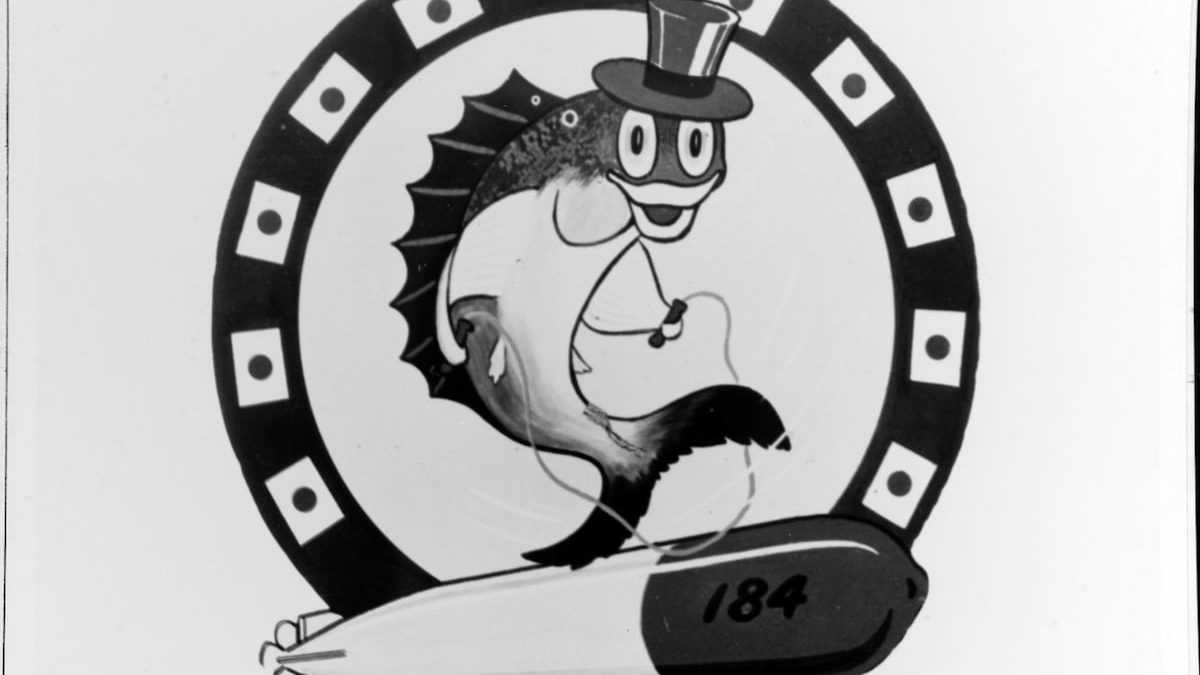For most of recorded history, more men have died from disease in some faraway field than from an enemy bullet.
“Diseases,” writes historian John A. Haymond, “particularly those of the insect-borne or water-specific types, have been responsible for untold millions of deaths in militaries across the millennia. Ironically, armies ravaged by disease have usually carried the seeds of their destruction with them in the form of poor field sanitation habits. After all, a sufficiently provisioned army of 10,000 men could produce about four tons of fecal waste every day.”
On June 11, 1942, disease, and perhaps an increasing desire not to use one’s own hand to wipe one’s nether regions, drove Lt. Cmdr. James Coe of the submarine Skipjack to send an “urgent” message to the powers that be.
Since July 1, 1941, a requisition had been submitted for 150 rolls of toilet paper to replenish the dwindling supply aboard the Skipjack. However, as the boat patrolled the Pacific, no sign of the all-important bathroom item appeared — even as other war materiel came in.
In March 1942, according to the National WWII Museum, Coe took command of the Skipjack and learned of the dire, and no doubt malodorous, situation. To make matters worse, Coe received a canceled invoice for the TP alongside a stamped July 1941 message stating “cancelled-cannot identify.”
In response to this bureaucratic fumble, Coe issued a letter to the supply officer in Mare Island, California. His tongue-in-cheek rejoinder would become the stuff of legends within the Navy.
USS SKIPJACK
June 11, 1942
From: Commanding Officer To: Supply Officer, Navy Yard, Mare Island, California Via: Commander Submarines, Southwest Pacific
Subject: Toilet Paper
Reference: (a) USS HOLLAND (5148) USS Skipjack req. 70-42 of 30 July 1941. (b) SO NYMI Canceled invoice No. 272836
Enclosure: (1) Copy of cancelled Invoice (2) Sample of material requested.
1. This vessel submitted a requisition for 150 rolls of toilet paper on July 30, 1941, to USS HOLLAND. The material was ordered by HOLLAND from the Supply Officer, Navy Yard, Mare Island, for delivery to USS Skipjack.
2. The Supply Officer, Navy Yard, Mare Island, on November 26, 1941, cancelled Mare Island Invoice No. 272836 with the stamped notation “Cancelled—cannot identify.” This cancelled invoice was received by Skipjack on June 10, 1942.
3. During the 11 ¾ months elapsing from the time of ordering the toilet paper and the present date, the Skipjack personnel, despite their best efforts to await delivery of subject material, have been unable to wait on numerous occasions, and the situation is now quite acute, especially during depth charge attack by the “back-stabbers.”
4. Enclosure (2) is a sample of the desired material provided for the information of the Supply Officer, Navy Yard, Mare Island. The Commanding Officer, USS Skipjack cannot help but wonder what is being used in Mare Island in place of this unidentifiable material, once well known to this command.
5. Skipjack personnel during this period have become accustomed to use of “ersatz,” i.e., the vast amount of incoming non-essential paper work, and in so doing feel that the wish of the Bureau of Ships for the reduction of paper work is being complied with, thus effectively killing two birds with one stone.
6. It is believed by this command that the stamped notation “cannot identify” was possible error, and that this is simply a case of shortage of strategic war material, the Skipjack probably being low on the priority list.
7. In order to cooperate in our war effort at a small local sacrifice, the Skipjack desires no further action be taken until the end of the current war, which has created a situation aptly described as “war is hell.”
J.W. Coe
War is hell when you don’t even have one-ply toilet paper but one must commend the eco-conscious Coe and crew for utilizing the “the vast amount of incoming non-essential paper work” to get the job done.
After almost a year going without the precious commodity, Skipjack submariners’ fortunes were about to change. Upon returning to Australia after its patrol, the men were greeted with crates of toilet paper seven feet high, toilet paper streamers decorating the dock and a band wearing toilet paper neckties with toilet paper adorning their trumpets and horns to greet them.
Tragically, after assuming command of the submarine Cisco in January of 1943, Cmdr. Coe was determined “missing in action” after the Cisco failed to return from war patrol in the South China Sea. He was presumed dead on Jan. 8, 1946.
However, his bravery — he was awarded the Navy Cross for his action on the Skipjack — and his particular brand of humor continue to live on.
Read the full article here


